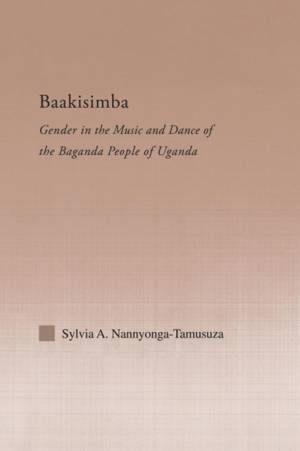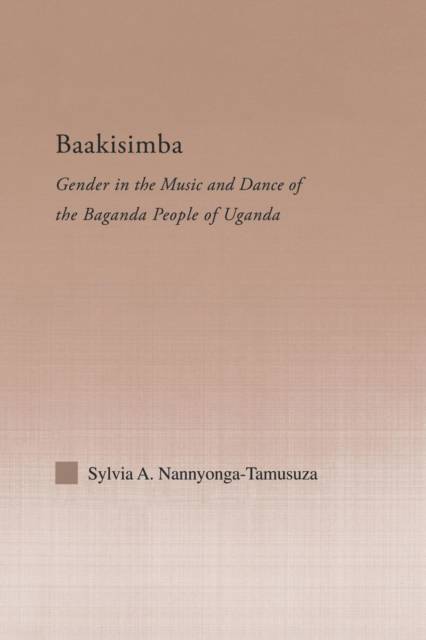
- Afhalen na 1 uur in een winkel met voorraad
- Gratis thuislevering in België vanaf € 30
- Ruim aanbod met 7 miljoen producten
- Afhalen na 1 uur in een winkel met voorraad
- Gratis thuislevering in België vanaf € 30
- Ruim aanbod met 7 miljoen producten
Zoeken
Baakisimba
Gender in the Music and Dance of the Baganda People of Uganda
Sylvia Antonia Nannyonga-Tamusuza
€ 244,45
+ 488 punten
Uitvoering
Omschrijving
Originally a royal court dance, baakisimba asserted the authority of the king as the head of Baganda society. After the abolition of kingship in 1967, baakisimba dance began to be performed in other contexts, with women sometimes playing the accompanying drums-traditionally a man's role-and with men occasionally performing the dance.Sylivia Nannyonga-Tamusuza argues that the music and dance of the Baganda people are not simply reflective of culture; baakisimba participates in the construction of social relations, and helps determine how these relations shape the performing arts. Integrating a study of foregrounds the conceptualization of gender as a time-specific cultural phenomenon. Illuminating the complex relationship between baakisimba and Baganda culture, this path breaking volume bridges the gaps in previous scholarship that integrates music and dance in ethnomusicological scholarship.
Specificaties
Betrokkenen
- Auteur(s):
- Uitgeverij:
Inhoud
- Aantal bladzijden:
- 316
- Taal:
- Engels
- Reeks:
Eigenschappen
- Productcode (EAN):
- 9781138805002
- Verschijningsdatum:
- 21/05/2015
- Uitvoering:
- Paperback
- Formaat:
- Trade paperback (VS)
- Afmetingen:
- 152 mm x 229 mm
- Gewicht:
- 421 g

Alleen bij Standaard Boekhandel
+ 488 punten op je klantenkaart van Standaard Boekhandel
Beoordelingen
We publiceren alleen reviews die voldoen aan de voorwaarden voor reviews. Bekijk onze voorwaarden voor reviews.











